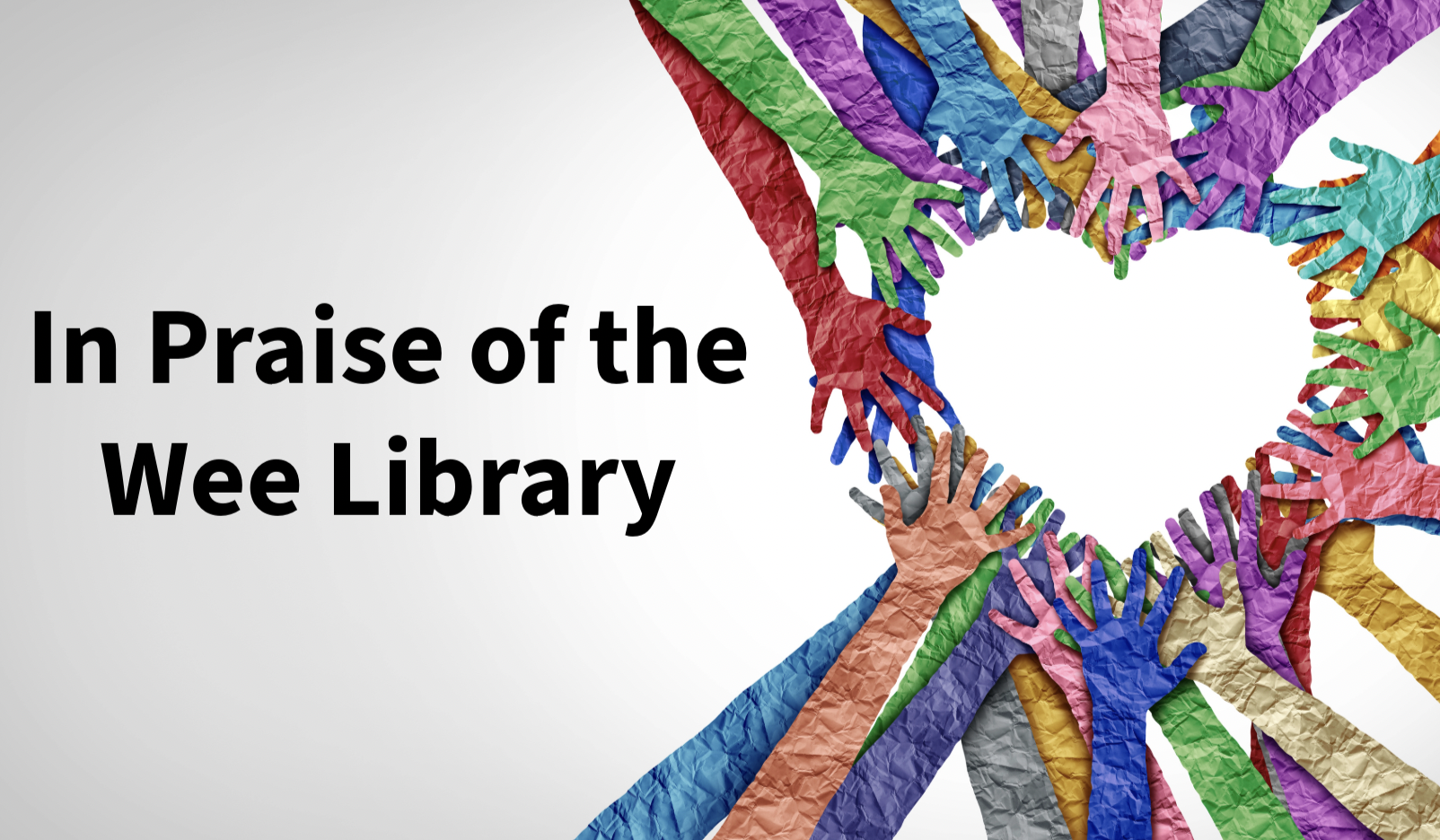Bigger Isn’t Always Better: In Praise of the Wee Library

By Kavan Stafford, CILIPS Trustee
Nobody would deny that large, central public libraries are vital to the culture of Scottish cities. After all, they provide hugely diverse services and activities. My workplace, the Mitchell Library, for example, contains a Special Collections department, the city archives, the city’s Business and IP Centre, a book collection of (quite literally) millions of volumes and more. Other central libraries across the country in Edinburgh, Aberdeen and elsewhere have similar offers. However, their size and stature can mean that they sometimes overshadow the incredible work done by small libraries in communities and high streets across the country. This is especially true when it comes to local government cuts.
When I was growing up, Halfway Library (one of the seven libraries put forward for potential closure in the South Lanarkshire Council budget) was my local haven. A few years ago, when passing it in the car, I pointed it out excitedly to my wife.
‘It’s really small,’ she said, surprised.
And she was right. The library, which sits snug between a corner shop and a barber’s, really is tiny. In contrast to the huge ten-floor monolith I arrive at every day for work, it looks more like a shop than anything else. But to me, a little boy reading everything he could get his hands on, it seemed gigantic. I got to know the tiny left-hand side of the space, which housed the children’s and teenage section so well that even now, twenty years later, I can bring it to mind instantly. I regularly made the short walk from my home on a Saturday morning to bring back piles of books to feed my habit (Goosebumps and Point Horror were particular schlocky favourites) and pestered my mum into signing a form so that I could take some out from the adult section.
Having a library like Halfway in the heart of my community gave me a place to go, to learn new things and to develop my independence (in fact, it’s the first place I can remember walking entirely by myself) but now having worked in similar libraries across Glasgow, I know that it is more than just a place for a bookish wee boy to find reading material. Small, local libraries are lifelines for people of all ages. They come to take out books as I did, yes, but they also come to get access to computers, to Wi-Fi, to read newspapers, to meet friends, to take part in free classes in literacy, English as a second language and IT, to get out of the house and interact with people to combat loneliness, even to speak to Macmillan Cancer Support. Increasingly, these spaces are even used to combat the biting cold of winter in a time when gas and electricity prices seem to spike higher every month.
Yes, larger central libraries can do all that too, but they aren’t situated in local communities and immersed in local issues. The staff in wee libraries across Scotland know their users, they know their needs and they work to serve them in a way that a central library cannot and, when your local library is just down the road, you don’t even need to pay for a bus ticket to get access to all they offer. Small local libraries are the epitome of the aim of librarians across the world to provide information and help to everyone we can.
Even when we leave the communities they serve, the wee libraries stay with us. I moved out of the area about ten years ago, but I still think about Halfway Library often. I wrote about it when completing my librarianship degree and talked about in my interview for my first library job, at a very similar library in Easterhouse, and look for it every time I pass. When I advocate for local governments to fund libraries, it’s always the library on my mind. Sometimes I wonder if I would be a librarian now without it. I think not.
And so, I was devastated to learn that it, along with Blantyre Library, Cambuslang Library and others, could potentially be closed as part of council budget cuts. To the council, perhaps it seems to make sense. After all, what libraries like Cambuslang and Halfway have in common is that they’re only wee. To those who think so, I would ask them to look at all that community members get from those libraries and reflect on what would be lost without them.
We should do the same. It’s easy to feel fatalistic when looking at government cuts. What can we do about it? The answer is this; all we can. And so, I implore you to write to your local councillors and make your voice heard. Tell them what your local library means to you and what it means to the others in your community. Libraries like Halfway may look small but, like the TARDIS, like people and (of course) like books, they’re so much bigger on the inside. We forget that at our peril.
Visit the CILIPS how can I help? advocacy hub for letter templates, posters and further campaign inspiration.